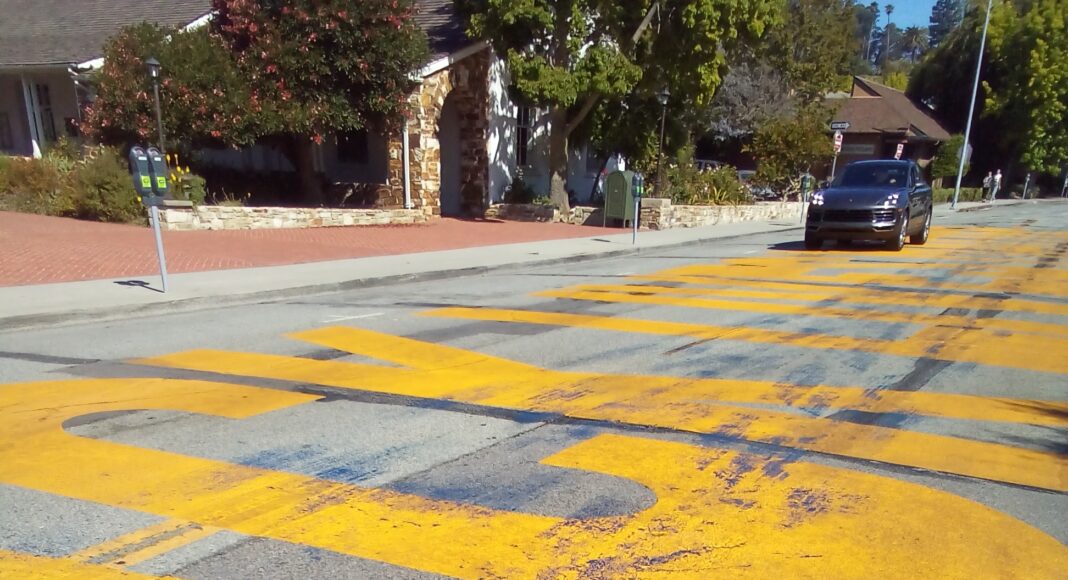Before the Santa Cruz County Board of Supervisors on Tuesday unanimously approved an equity statement, Elaine Johnson, president of Santa Cruz County’s NAACP branch, described an experience years ago that she says is “still traumatizing to this day.”
Johnson, who has lived in Santa Cruz for two decades, came out of a restaurant to find a man slashing her tires, who then called her the N-word.
“I’ve never, ever had that experience growing up in New York City,” she said. “So I ask us—I invite us—to make this change, because we all deserve to be here.”
The County’s newly approved equity statement is:
“Equity in action in Santa Cruz County is a transformative process that embraces individuals of every status, providing unwavering support, dignity, and compassion.
Through this commitment, the County ensures intentional opportunities and access, fostering an environment where everyone can thrive and belong.”
It, along with a framework of steps needed to combat systemic racism and discrimination, was forged by the Circle on Anti-Racism, Economic, and Social Justice (CARESJ), a group of dozens of county workers and community members formed three years ago when the Supervisors declared racism a public health crisis.
“In 2020, it became clear as we saw actions around the country that we needed to address the systemic issues of race, equity in our country and our county,” said former Supervisor John Leopold, who launched the original effort to create the equity framework.
At the time, Leopold said he saw disproportionate minority confinement in the County Jail, among other things.
“The idea was to try to wrestle with what we as a county could do,” he said.
Johnson said she supports the statement, but said that the community should be willing to transform it to demonstrable steps.
“I want more,” she said. “We have to show up differently in this community. We can come here and we can do the work and we can present the work that is needed to make change in this community, but everything speaks on action.”
One problem that needs to be addressed, said Viviana Rocha, who works in the County Tax Collector’s office, is that many residents are unable to receive county services because they do not speak English and cannot find translation services.
“I am passionate about helping my Latino community, who could be my abuela, my abuelo, tia, tio or primo (grandmother, grandfather, aunt, uncle or cousin) who may not understand the services we provide for this wonderful community we live in,” Rocha said.
County Principal Administrative Analyst Sven Stafford said that more than 1,000 people contributed to this statement.
“Those that participated took a risk by trusting that this process would lead to much more change than an equity statement on a website,” he said.
More than a dozen people spoke in favor of the equity statement.
“This statement embodies the ideal of inclusivity that our community holds dear, and moves us in the right direction towards addressing inequities that are impacting too many of our friends and neighbors in Santa Cruz,” said Capitola Vice-Mayor Kristen Brown.
Just two people spoke against the equity statement—neither giving their names—both implying that racism is not a problem in Santa Cruz County and one implying it is a conspiracy theory.
Artist Abi Mustapha, who co-founded SC Equity Collab and was part of the group that created the defaced and restored Black Lives matter mural, said she supports the equity statement, “with all my heart.”
But she also said that she was terrified to be in the room after hearing people speak against it.
“I’ve received hate mail that is very, very in alignment with a lot of the words and the aggression that have been spoken in this room, dare I say almost to a T,” she said
Everyone, Mustapha said, has different life experiences, which is what the equity statement acknowledges.
At the same time, the cultural shift that could come with implementing the framework could be uncomfortable for some, she said.
“There is a difference between oppression and losing a little bit of your privilege, and there are times when people who have experienced a lot of privilege might feel like equity or equality is oppression,” she said. “And I guarantee you it is not, it is discomfort.”
Supervisor Manu Koenig called the potential changes “lofty but achievable,” and pointed to the goal of increasing by 60% the number of Hispanic and Latino South County residents serving on boards and commissions.
Supervisor Felipe Hernandez called the move “a great start.”
“I believe the equity statement is a working document, and with all the great partners we have here, we will continue to evolve to better repair the inequities and the historic underfunding of communities,” he said.
Supervisor Justin Cummings said that the county should boost its efforts to keep rent and home prices low, allowing low-income people to better afford to live here.
“That’s one of the issues that determines who gets to be in this community,” he said.
The matter will return to the supervisors in August 2024 for an update on how the county has implemented the equity framework.













